Indigenous Governance Database
locally grown foods
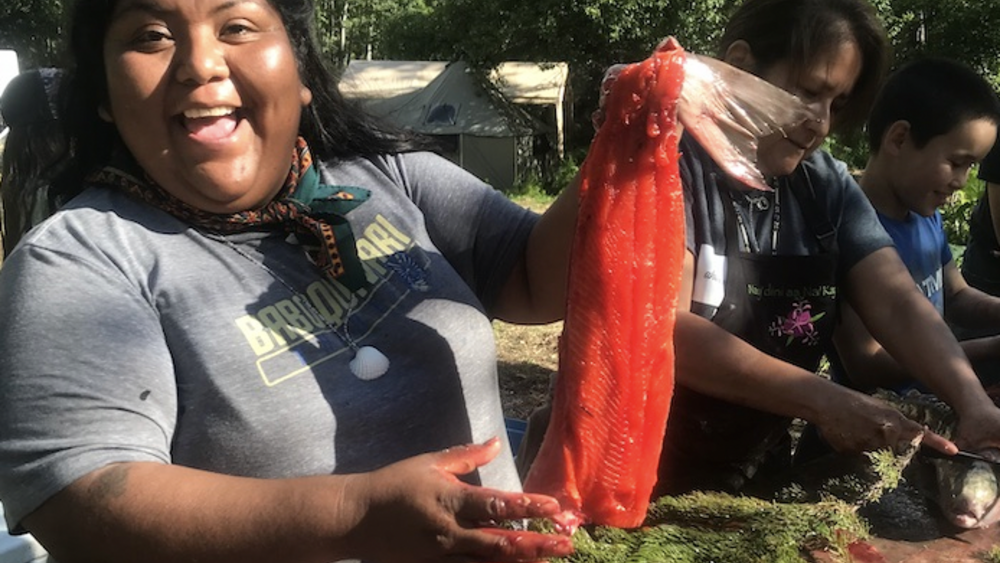
Indigenous Foods Knowledges Network: Facilitating Exchange between Arctic and Southwest Indigenous Communities on Food and Knowledge Sovereignty
On a sunny morning in June of 2019, our hosts at the Athabaskan Nay'dini'aa Na'Kayax' Culture Camp, located near Chickaloon Native Village in south-central Alaska, set up a table near the smoke house and demonstrated how to fillet salmon. It was salmon season in Chickaloon, and young campers were…
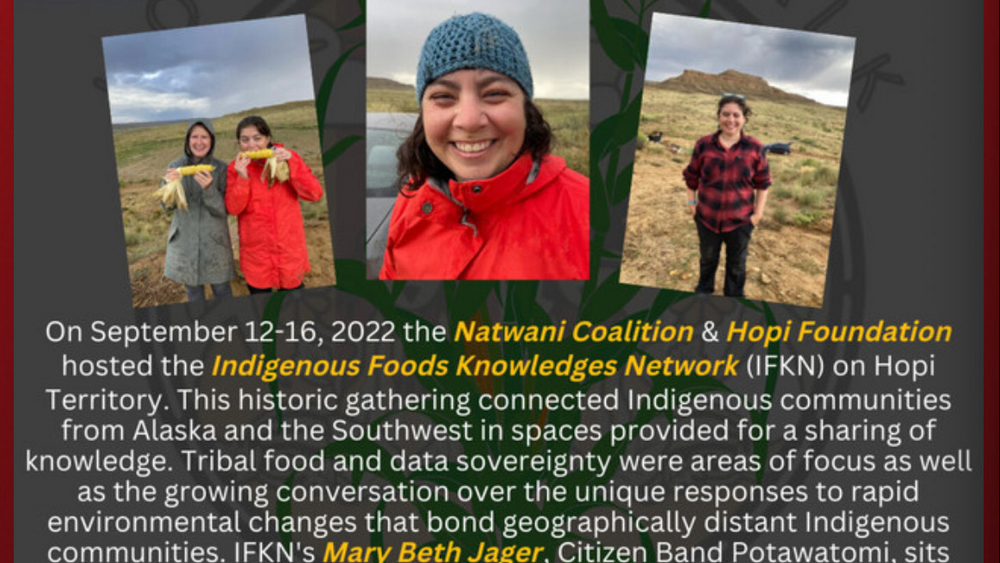
Hopi Farm Talk Podcast: Indigenous Foods Knowledges Network Gathering with Mary Beth Jäger
On September 12-16, 2022, the Natwani Coalition & Hopi Foundation hosted the Indigenous Foods Knowledges Network (IFKN) on Hopi Territory. This historic gathering connected Indigenous communities from Alaska and the Southwest in spaces provided for a sharing of knowledge. Tribal food and data…
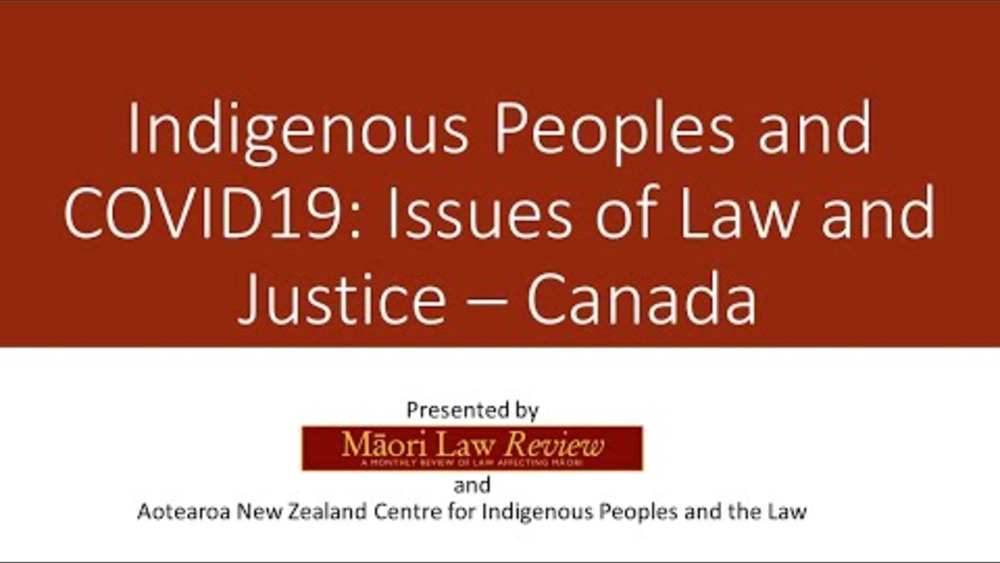
Indigenous Peoples and COVID-19: Issues of Law and Justice – Canada
A co-production of New Zealand's Victoria University of Wellington and the Aotearoa New Zealand Centre for Indigenous Peoples and the Law, the "Indigenous Peoples and COVID-19: Issues of Law and Justice" is a series of conversations focused on the experiences of Indigenous Peoples with COVID…
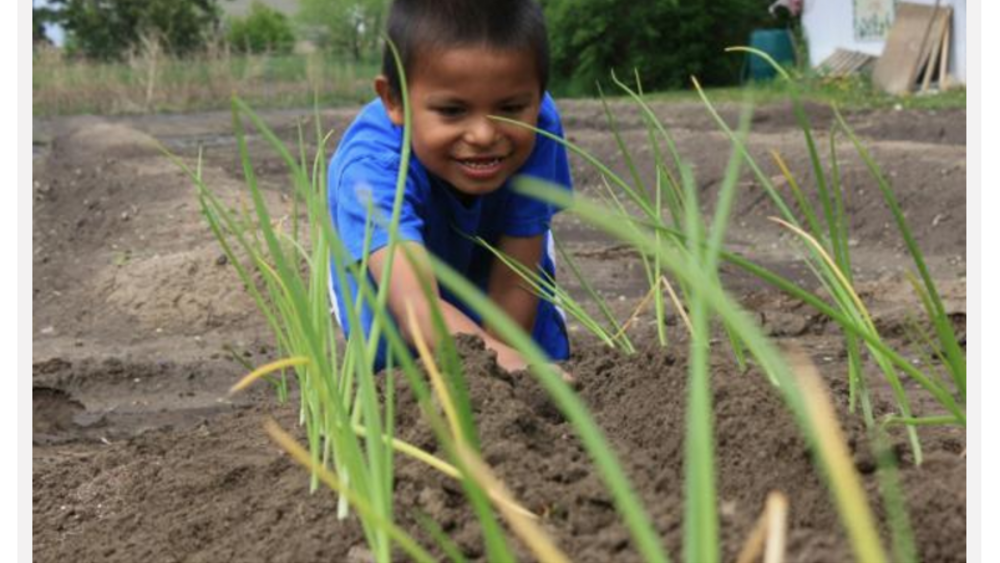
Cheyenne River Youth Project's Garden Evolving Into Micro Farm
When the Cheyenne River Youth Project started its organic garden in 1999, staff at the 26-year-old nonprofit would never have guessed where the little garden would take them. The two-acre Winyan Toka Win–or “Leading Lady”–garden is the heart of the youth project, and is becoming a micro farm.…
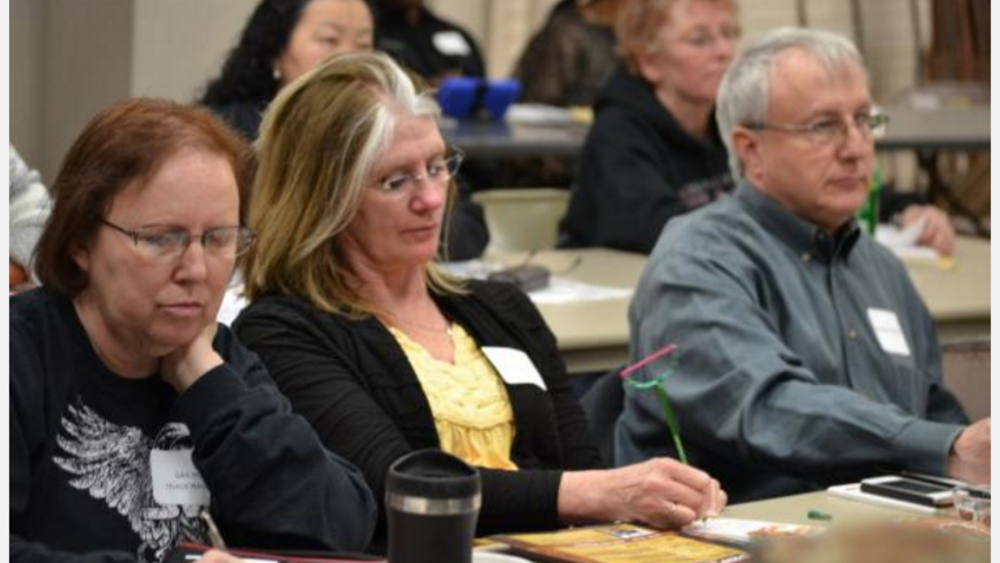
Food Sovereignty: How Osage People Will Grow Fresh Foods Locally
Growing fresh and local foods for Osage people is now a revived approach to food sovereignty for the Osage Nation so efforts to find the most successful methods are being looked into by leadership and community members. On Feb. 7, the Oklahoma Department of Agriculture along with the Oklahoma State…
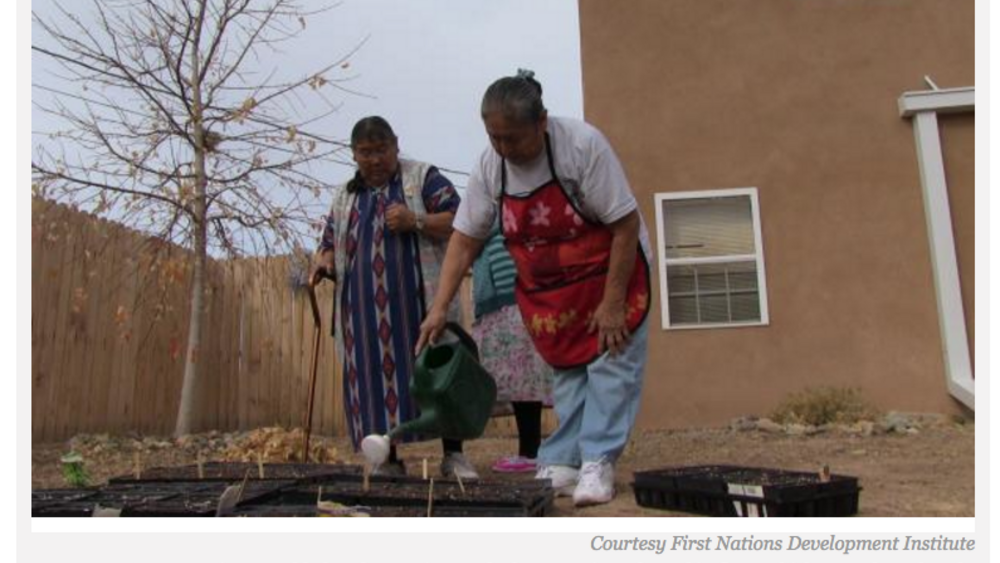
Winona LaDuke: Keep USDA Out of Our Kitchens
Native American author, educator, activist, mother and grandmother Winona LaDuke, Anishinaabekwe, is calling on tribes to relocalize food and energy production as a means of both reducing CO2 emissions and of asserting tribes' inherent right to live in accordance with their own precepts of the…
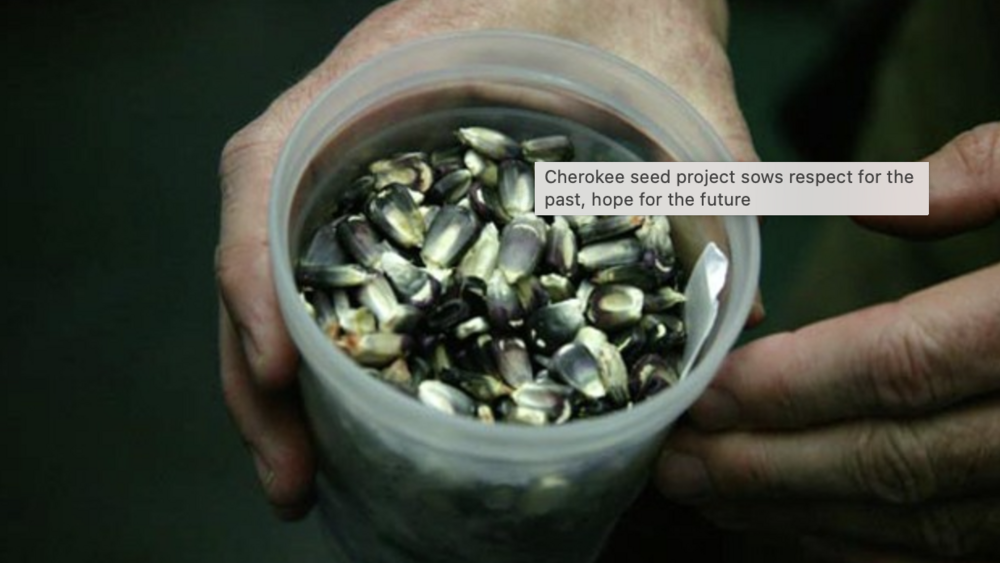
Cherokee seed project sows respect for the past, hope for the future
The Cherokee Indians are preserving the roots of their heritage with a program that allows officially recognized members of the tribe to access seeds that are unique to the Cherokee Nation. Principal Chief of the Cherokee Nation, Bill John Baker explained the seeds' lineage to CNN. "This strain of…
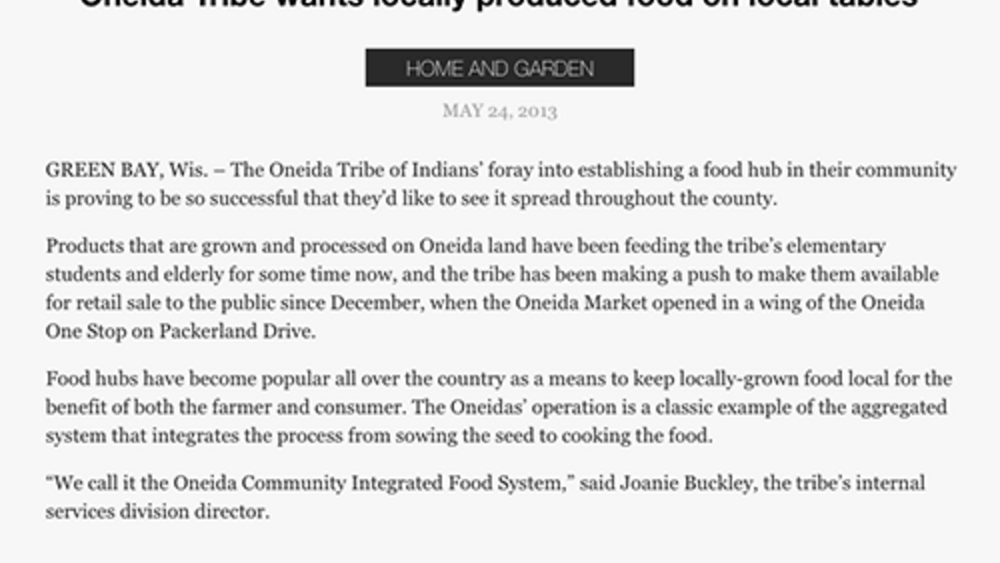
Oneidas want locally produced food on local tables
The Oneida Tribe of Indians’ foray into establishing a food hub in their community is proving to be so successful that they’d like to see it spread throughout the county. Products that are grown and processed on Oneida land have been feeding the tribe’s elementary students and elderly for some time…
Muckleshoot Food Sovereignty Project
The Muckleshoot Food Sovereignty Project is helping to increase understanding of Native foods and build community food security by exploring the Muckleshoot Tribe's food assets and access to local, healthy, and traditional foods.
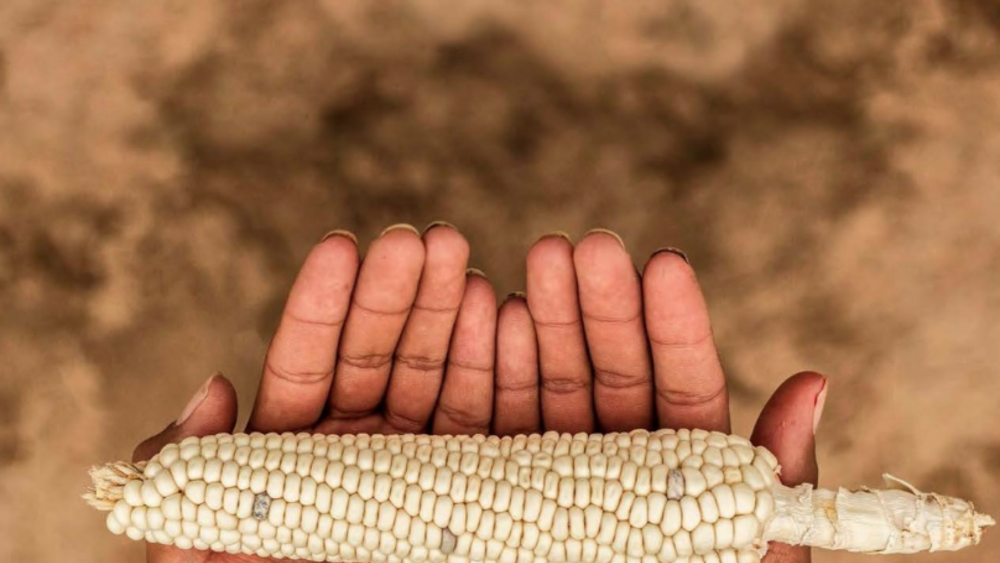
Feeding Ourselves: Food Access, Health Disparities, and the Pathways to Healthy Native American Communities
Echo Hawk Consulting, headed by Crystal Echo Hawk, released today a comprehensive report on the state of food access in Native American communities, and the resulting health disparities in Native Americans. The report--commissioned by the American Heart Association (AHA) and its Voices for Healthy…
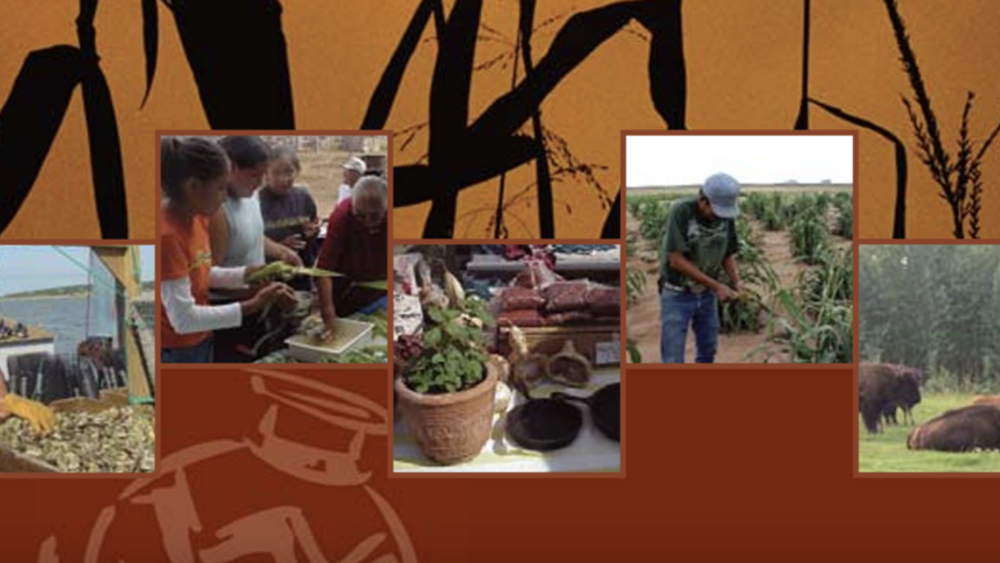
Food Sovereignty Assessment Tool
There are many assets related to Native food systems. Increased consumption of healthy and traditional foods may lead to better health among community members, preserving one of the most important assets in any community, its people. Of course, healthy, productive people are a cornerstone of any…

Diné Food Sovereignty: A Report on the Navajo Nation Food System and the Case to Rebuild a Self Sufficient Food System for the Diné People
In the most basic analysis, food is an essential component of human life. Food nourishes and sustains us; without adequate access to food, human beings cannot survive. As a basic necessity for life, food is interconnected with every sector of life and wellbeing including health (physical, mental,…
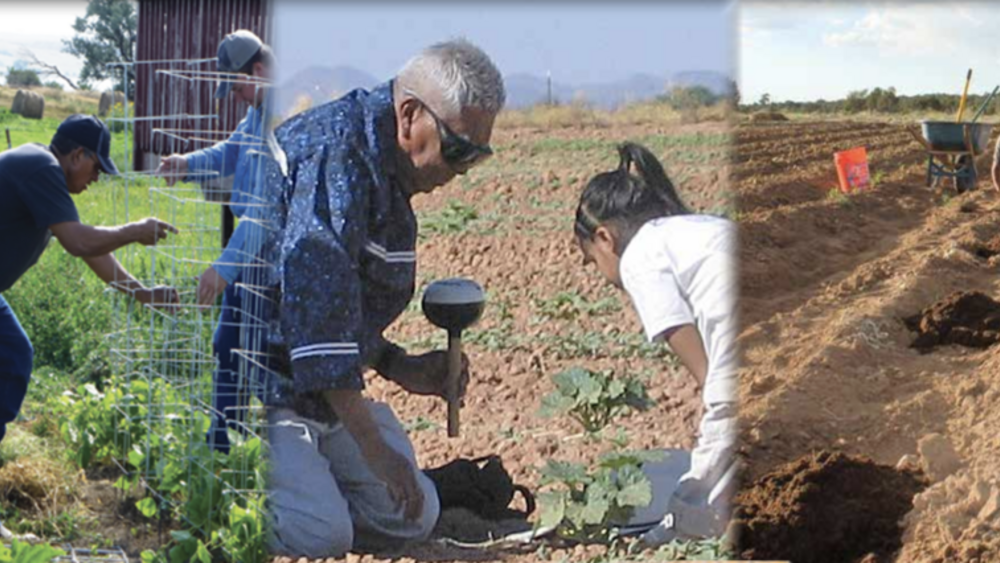
Good Food is Power: A collection of traditional foods stories from the Ramah Navajo Community, Standing Rock Sioux Tribe and Tohono O'odham Nation
This report explores the traditional foods movement through the lenses of three traditional foods programs: the Ramah Navajo Community, Standing Rock Sioux Tribe, and Tohono O’odham Nation. These stories were originally gathered by the University of Oklahoma’s American Indian Institute (Wesner,…
